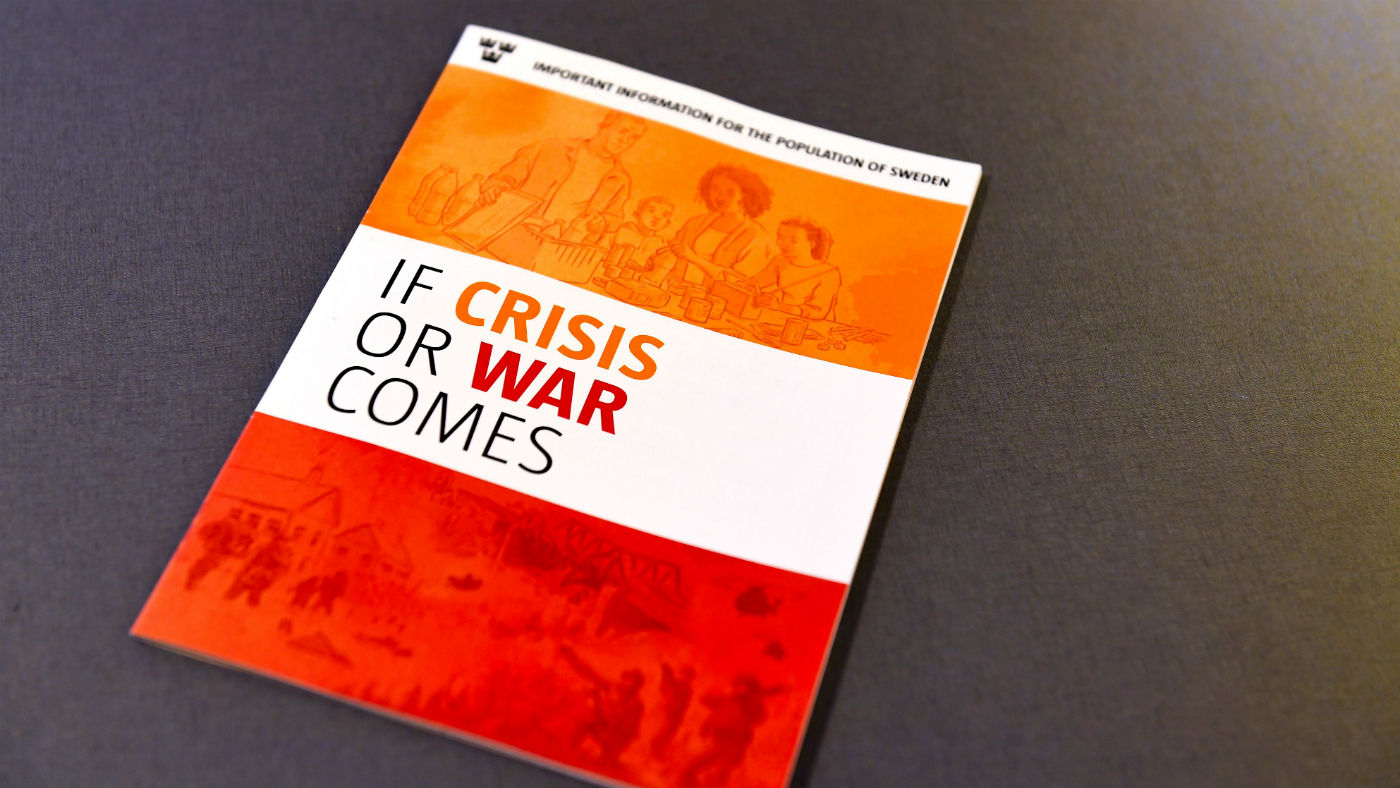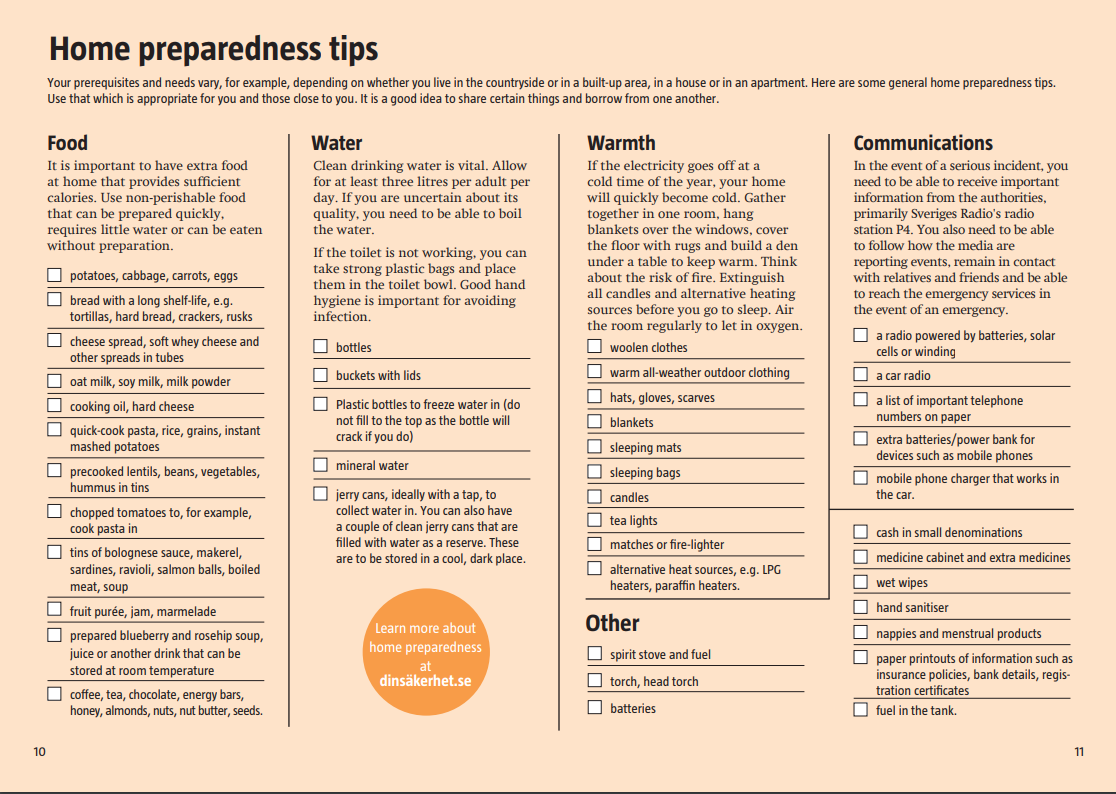What’s inside Sweden’s ‘prepare for war’ survival manual?
Government sending emergency readiness pamphlets to all Swedish households amid rising tensions with Russia

A free daily email with the biggest news stories of the day – and the best features from TheWeek.com
You are now subscribed
Your newsletter sign-up was successful
The Swedish government is sending out leaflets to all households in the country containing instructions for what to do in the case of war or national emergency.
The 20-page booklet, entitled If Crisis or War Comes, has drawn comparisons to the nuclear attack manuals widely distributed by national governments during the Cold War.
As a highly developed social democracy currently ranked among the world’s most peaceful nations in the Global Peace Index, Sweden may seem like an unlikely battleground.
The Week
Escape your echo chamber. Get the facts behind the news, plus analysis from multiple perspectives.

Sign up for The Week's Free Newsletters
From our morning news briefing to a weekly Good News Newsletter, get the best of The Week delivered directly to your inbox.
From our morning news briefing to a weekly Good News Newsletter, get the best of The Week delivered directly to your inbox.
However, Russian manoeuvres in the Baltic Sea and Moscow’s repeated infringements of Swedish airspace are believed to have prompted a rethink of the country’s safety.
Indeed the last battle to ever take place on Swedish soil - the Battle of Ratan and Savar in 1809 - was an attempted invasion by Russia.
Unveiling the pamphlet yesterday, the Swedish Civil Contingencies Agency made no reference to specific threats, but the government has attributed several recent security measures, such as the reintroduction of conscription this year, to “Russian aggression”, Reuters reports.
So, what advice does the government give to Swedes caught up in a hypothetical national emergency?
A free daily email with the biggest news stories of the day – and the best features from TheWeek.com
Stock up on supplies
The booklet, whose front cover depicts a family packing water bottles, tins of food and a radio into a box, warns that supplies may run low during a crisis.
It lists “oat milk, tins of Bolognese sauce and salmon balls as examples of food that people should store in case of an emergency”, says Reuters, “along with tortillas and sardines”. Families are advised to allow at least three litres of water per person.
Watch out for fake news
The civil contingencies agency warns that “states and organisations are already using misleading information in order to try and influence our values and how we act”.
In the event of a national emergency, Swedes are urged to “be on the lookout for misleading information” and not to engage in “spreading rumours”.
Be ready for anything
Besides military aggression by other nations, the booklet lists cyber attacks, natural disasters and terror attacks as potential causes of a crisis, causing anything from a blackouts to water shortages to the downing of computer systems.
“Think about how you and people around you will be able to cope with a situation in which society's normal services are not working as they usually do,” it says.
Stay warm
In the event that central heating ceases to function, Swedes should take swift preparations to protect themselves from the cold.
“Gather together in one room, hang blankets over the windows, cover the floor with rugs and build a den under a table to keep warm,” the pamphlet advises. Fire should be used sparingly in a closed room so as not to consume too much oxygen.
Work together
“Everyone who lives in Sweden shares a collective responsibility for our country's security and safety,” the booklet says. “When we are under threat, our willingness to help each other is one of our most important assets.”
Never surrender
Scandinavian nations may have a reputation as enlightened and peaceful, but “if Sweden is attacked by another country, we will never give up,” the booklet says, adding: “All information to the effect that resistance is to cease is false.”
“Everyone who lives here and is between the ages of 16 and 70 can be called up to assist in various ways in the event of the threat of war.”
Also included is a guide for recognising emergency sirens and a a checklist of the items all Swedes should have ready in their homes in case of crisis:

The booklets are being sent out to all 4.8 million Swedish households ahead of the country’s Emergency Preparedness Week, which begins on 28 May.